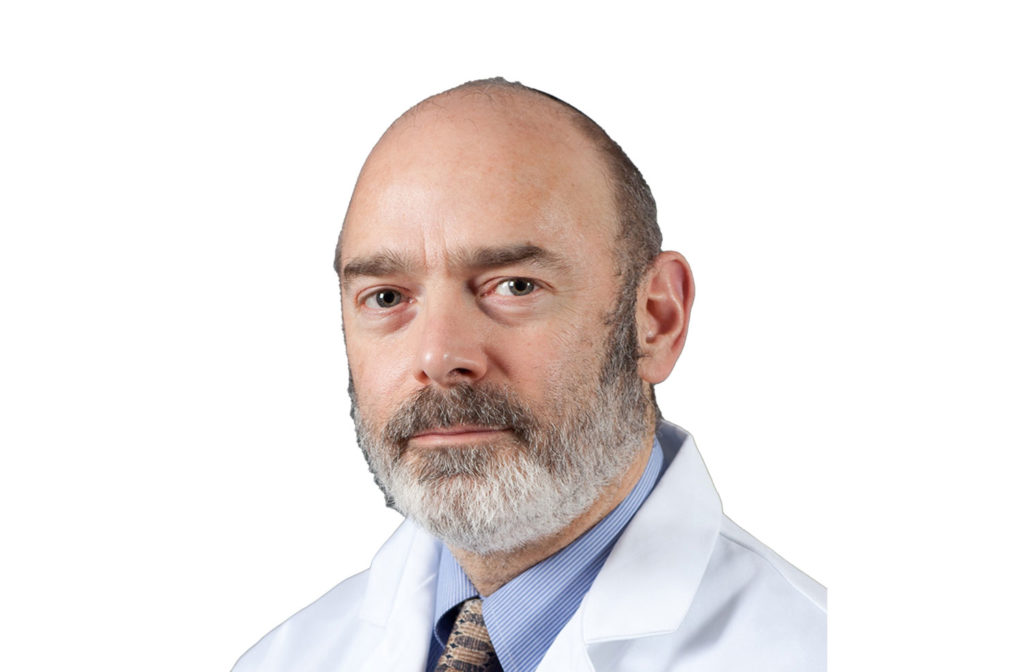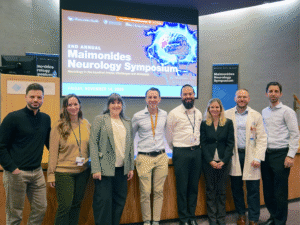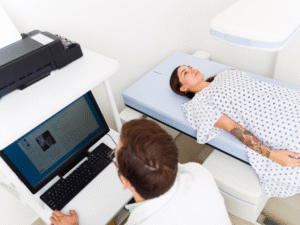As a gastroenterologist with over 30 years of experience, Aaron Tokayer, MD, Director of the Neurogastroenterology and Gastrointestinal (GI) Motility Center at Maimonides Medical Center, knows how debilitating it can be for patients to live with digestive conditions that are not only bothersome, but functionally limiting for patients who suffer from them.
“Appropriate diagnosis is essential to direct effective treatments for improved quality of life and function,” Dr. Tokayer says.
The Maimonides Neurogastroenterology and GI Motility Center offers patients the opportunity to receive comprehensive care from a multidisciplinary team of specialists through screening, diagnosis, and treatment of digestive disorders. Specializing in the full spectrum of neurogastroenterology and GI motility disorders, the center is a resource not only for patients but also for referring primary and GI physicians to evaluate and treat the full spectrum of GI disorders from “top to bottom.” This includes esophageal and swallowing disorders, Gastroesophageal Reflux Disease, stomach function disorders, such as poor digestion or discomfort with eating, gas and bloating, irritable bowel syndrome, and more.
Convening Multidisciplinary Experts to Provide Comprehensive Patient Care
“We collaborate across different specialties including ENT, general thoracic and colorectal surgery, gynecology, and many others, to provide patients with the comprehensive care required to achieve optimal digestive health,” says Dr. Tokayer, a gastroenterologist with over 30 years of experience. He also serves as a Clinical Professor of Medicine at the Albert Einstein College of Medicine and as an Adjunct Professor of Medicine at SUNY Downstate.
Digestive problems are extremely common and on the rise. According to the National Institute of Diabetes and Digestive and Kidney Diseases, 60–70 million Americans are affected by digestive diseases.
“If a patient has persistent, refractory, or bothersome digestive symptoms and isn’t responding adequately to medication and dietary changes, we welcome physician referrals,” Dr. Tokayer says. “In addition to standard imaging tests (including ultrasounds, MRIs, CT scans, and X-rays), we use state-of-the-art diagnostic tests and therapeutic interventions that examine GI motility, GERD, stomach, small bowel and colon, as well as anorectal function. Accurate diagnosis then directs treatment and care.”
Prior to joining Maimonides, Dr. Tokayer worked as attending physician on the full-time staff in the training program as well as Director of GI Motility at Montefiore Medical Center. His areas of interest include neurogastroenterology and GI motility; GI clinical practice and patient care; endoscopic interventions; patient-physician interactions; and educating colleagues, physicians, and GI fellows.
He adds that it’s possible for most GI patients to achieve better health outcomes with a proper diagnosis, education, and an individualized treatment plan.
“Our testing and treatment capacities go beyond traditional medicine and examine how a patient’s sleep patterns, ability to manage stress, and proper nutrition, also play a role in how well their GI condition is managed,” Dr. Tokayer says. “By combining modalities such as diet and behavioral therapy, biofeedback, pharmacologic interventions, or various endoscopic or surgical therapies, we can treat the underlying cause of a patient’s symptoms and create a comprehensive and effective treatment plan.”




